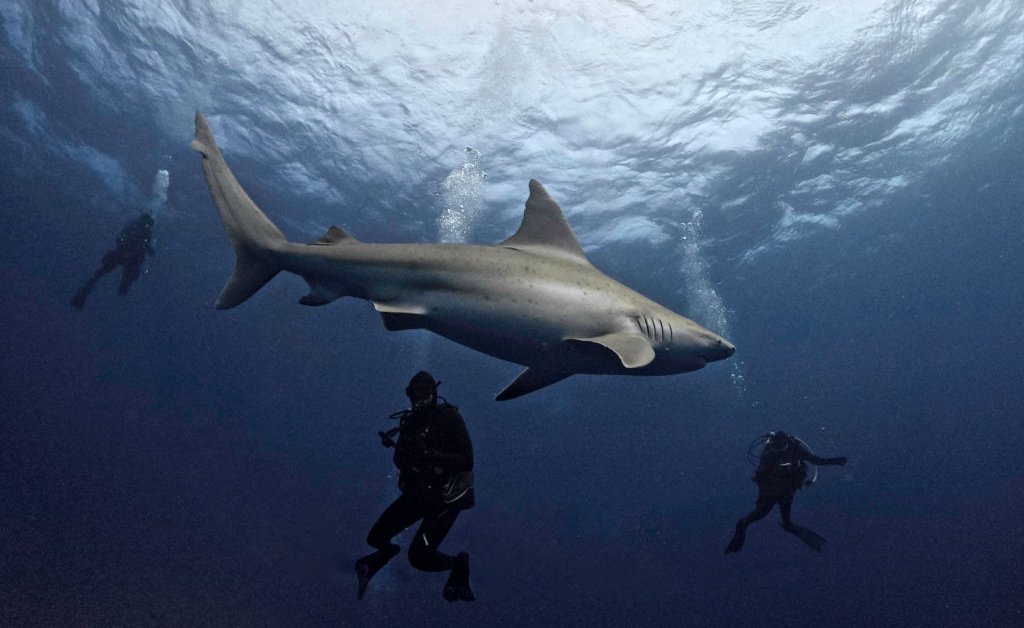The Jaws Effect: How A Movie Fueled Misconceptions About Shark Conservation

Welcome to your ultimate source for breaking news, trending updates, and in-depth stories from around the world. Whether it's politics, technology, entertainment, sports, or lifestyle, we bring you real-time updates that keep you informed and ahead of the curve.
Our team works tirelessly to ensure you never miss a moment. From the latest developments in global events to the most talked-about topics on social media, our news platform is designed to deliver accurate and timely information, all in one place.
Stay in the know and join thousands of readers who trust us for reliable, up-to-date content. Explore our expertly curated articles and dive deeper into the stories that matter to you. Visit Best Website now and be part of the conversation. Don't miss out on the headlines that shape our world!
Table of Contents
The Jaws Effect: How a Movie Fueled Misconceptions About Shark Conservation
Introduction:
Steven Spielberg's 1975 masterpiece, Jaws, terrified audiences worldwide with its depiction of a monstrous great white shark terrorizing a beach town. While a cinematic triumph, the film's legacy extends beyond box office success; it inadvertently fueled a wave of shark fear and misconceptions that continue to hinder shark conservation efforts today. This enduring "Jaws effect" has had profound and lasting consequences for these vital ocean predators.
The Rise of Fear and Misinformation:
Jaws wasn't just a movie; it was a cultural phenomenon. Its portrayal of sharks as mindless, man-eating killing machines resonated deeply, shaping public perception for decades to come. This dramatic portrayal overshadowed the crucial ecological role sharks play in maintaining healthy ocean ecosystems. The film's impact led to:
-
Increased Shark Culls: Following the film's release, many coastal communities launched indiscriminate shark culling programs, driven by fear and a lack of understanding about shark behavior. These actions decimated shark populations, particularly vulnerable species like great whites, without addressing the actual root causes of any potential human-shark conflicts.
-
Negative Public Perception: The image of sharks as inherently dangerous predators became deeply ingrained in popular culture. This negative perception continues to fuel media sensationalism and contribute to the misunderstanding surrounding shark behavior and conservation needs. Many documentaries and news stories still rely on sensationalized narratives to capture viewer attention, perpetuating harmful stereotypes.
-
Lack of Conservation Funding: Due to this negative perception, securing funding for shark conservation research and protection programs has remained a significant challenge. Public opinion, largely shaped by the "Jaws effect," often overlooks the importance of shark conservation and the dire consequences of their decline.
Debunking the Myths: Understanding Sharks' Role in the Ecosystem:
Sharks are apex predators, crucial for maintaining the balance of marine ecosystems. Their presence indicates a healthy ocean. Contrary to the Jaws portrayal, unprovoked shark attacks are extremely rare. Statistics from organizations like the Global Shark Attack File show that the chances of being attacked by a shark are minuscule compared to other risks.
The Importance of Shark Conservation:
The decline of shark populations due to overfishing, habitat loss, and bycatch has severe consequences for the entire marine environment. Sharks are vital for:
- Maintaining Biodiversity: As apex predators, they control populations of other species, preventing imbalances in the food web.
- Supporting Healthy Coral Reefs: Sharks contribute to the health of coral reefs by regulating prey populations and keeping the ecosystem in balance.
- Economic Benefits: Shark tourism generates substantial revenue for coastal communities, offering a more sustainable alternative to shark finning.
Moving Beyond the "Jaws Effect": The Path to Conservation:
Overcoming the legacy of Jaws requires a multi-pronged approach:
- Education and Awareness: Promoting accurate information about sharks through educational programs and responsible media coverage is crucial in changing public perception.
- Scientific Research: Continued research on shark behavior, ecology, and conservation needs is essential for effective management strategies.
- Sustainable Fishing Practices: Implementing stricter regulations on fishing practices to reduce bycatch and protect vulnerable shark populations is vital.
- Supporting Conservation Organizations: Organizations like the and are dedicated to shark conservation and rely on public support.
Conclusion:
While Jaws remains a cinematic landmark, its impact on shark conservation is undeniably negative. By understanding the "Jaws effect" and actively combating the misconceptions it perpetuated, we can work towards a future where sharks are appreciated and protected for their critical role in a healthy ocean. Let's move beyond fear and embrace a future where sharks thrive. Learn more and get involved in shark conservation today! Support organizations dedicated to their protection and help spread the truth about these magnificent creatures.

Thank you for visiting our website, your trusted source for the latest updates and in-depth coverage on The Jaws Effect: How A Movie Fueled Misconceptions About Shark Conservation. We're committed to keeping you informed with timely and accurate information to meet your curiosity and needs.
If you have any questions, suggestions, or feedback, we'd love to hear from you. Your insights are valuable to us and help us improve to serve you better. Feel free to reach out through our contact page.
Don't forget to bookmark our website and check back regularly for the latest headlines and trending topics. See you next time, and thank you for being part of our growing community!
Featured Posts
-
 Rachel Brosnahan Prepares Amanda Seyfried For Superman Summer Premiere
Jun 18, 2025
Rachel Brosnahan Prepares Amanda Seyfried For Superman Summer Premiere
Jun 18, 2025 -
 Celta Vigos Fer Lopez Set For Wolverhampton Wanderers Medical
Jun 18, 2025
Celta Vigos Fer Lopez Set For Wolverhampton Wanderers Medical
Jun 18, 2025 -
 Adidas Unveils Special Edition Modric Jersey A Closer Look
Jun 18, 2025
Adidas Unveils Special Edition Modric Jersey A Closer Look
Jun 18, 2025 -
 Camp Randall Stadium Hazmat Situation Road Closures In Effect
Jun 18, 2025
Camp Randall Stadium Hazmat Situation Road Closures In Effect
Jun 18, 2025 -
 Corentin Moutet Vs Taylor Fritz Prediction Form H2 H And Betting Odds
Jun 18, 2025
Corentin Moutet Vs Taylor Fritz Prediction Form H2 H And Betting Odds
Jun 18, 2025
